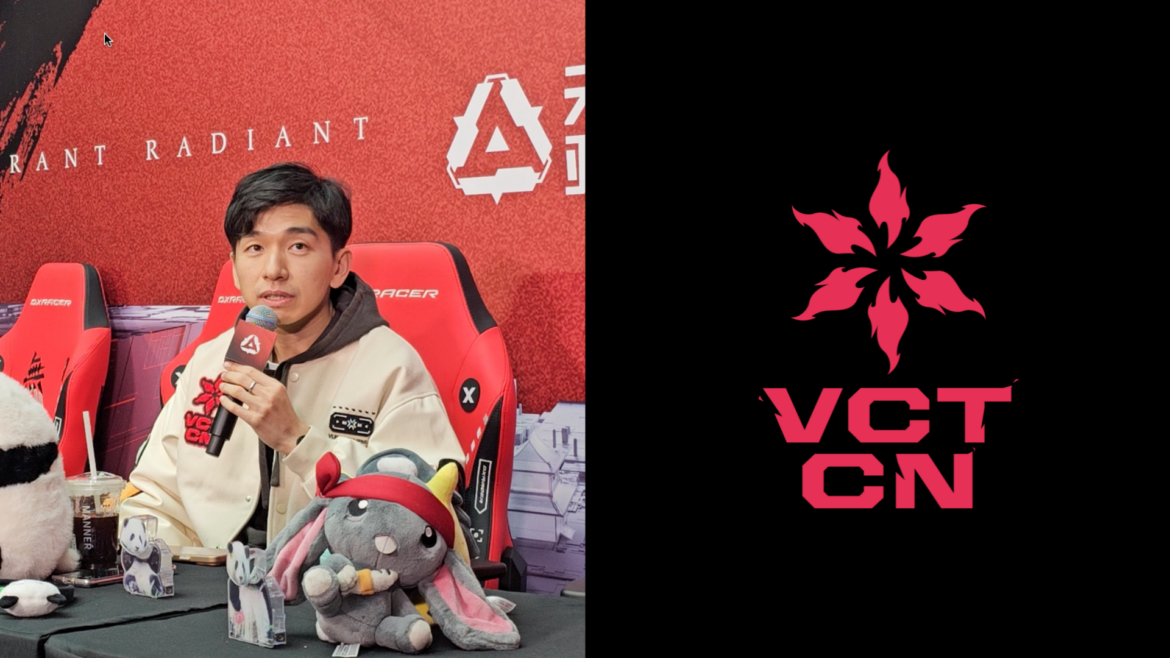Head of VCT CN and TJ Sports Vice President Eric Feng talked to members of the press about the VCT CN League and the VALORANT Radiant Asia Invitational.
CHINA – On the final day of the VALORANT Radiant Asia Invitational in Chengdu, a press conference was held featuring Eric Feng, TJ Sports Vice President and Head of VCT CN. Members of the press asked questions about the Chengdu event and the inaugural season of China’s domestic league, which concluded with a historic victory at VALORANT Champions Seoul, courtesy of EDward Gaming.
China had an incredible first year since officially launching VALORANT in July 2023. In less than two years, the region has established its own league, VCT CN, alongside the other three international leagues, hosted an international event in Shanghai, and capped off the year with a world championship victory, as mentioned earlier.
VALO2ASIA was invited to experience the region’s international OFF//SEASON tournament in Chengdu, a “new” first-tier city in China, famously known as the City of Pandas. The event took place at the Chengdu Quantum Media VSPO Esports Center, a venue purpose-built for esports competitions, just as its name suggests. As one of the only two English media outlets on-site, we feel we owe it to you all to give you a closer look at this event, as it may not have been widely covered on social media.
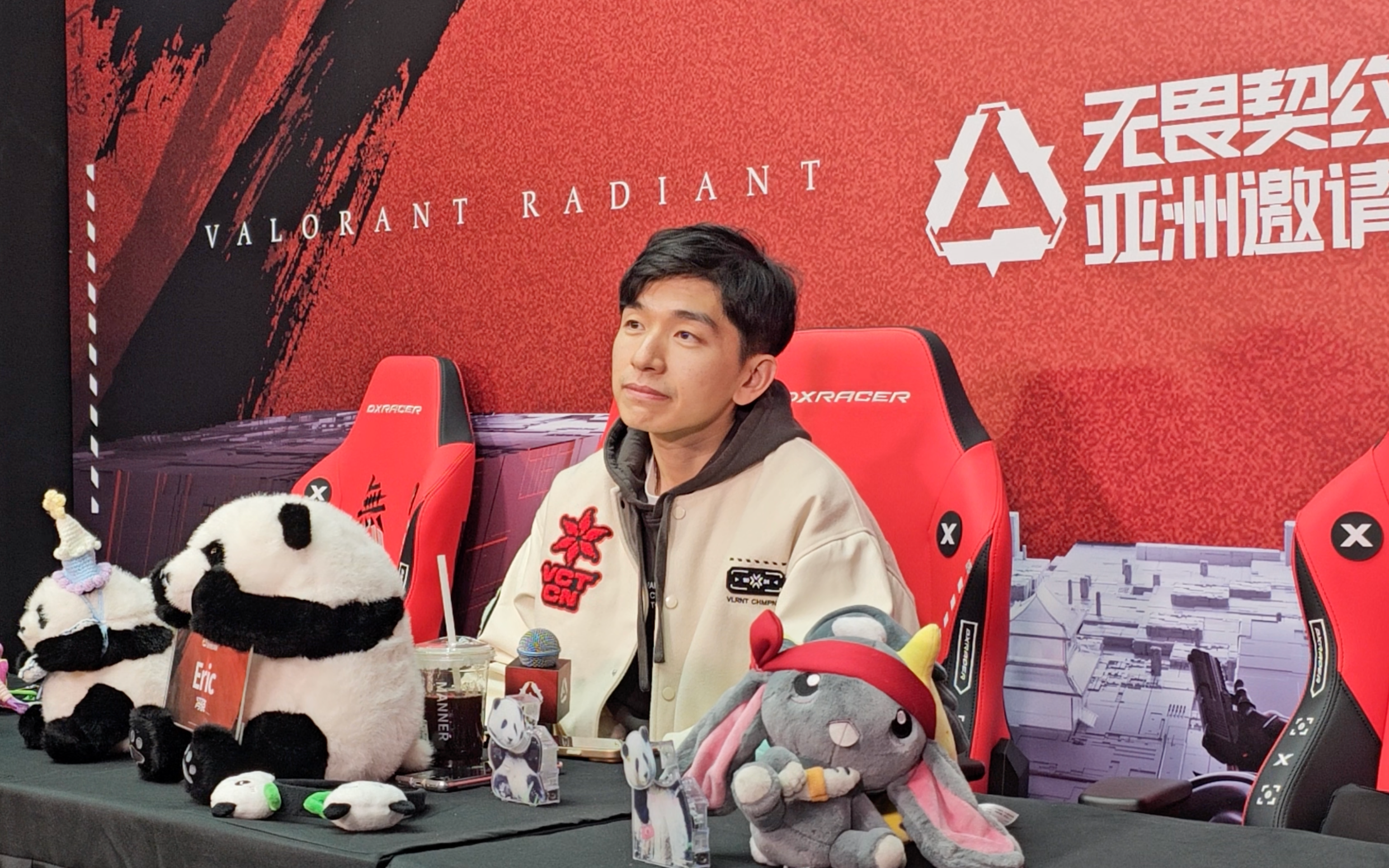
This wasn’t your typical OFF//SEASON event with a laid-back atmosphere. It had all the elements of a full VCT event, making it feel much grander than just an OFF//SEASON tournament. There were player walkouts, dramatic lighting, exclusive merchandise, trailers, and more. They even handed out newspapers to the audience, packed with team features, event updates, fun crossword puzzles, and more. You couldn’t ask for more—this was a complete package.
The event, which ended with Paper Rex lifting the trophy over DetonatioN FocusMe, really shows how much China is investing in VALORANT, and it’s clear that the game is becoming the next big thing. It’s quickly filling the gap left by other FPS games like Counter-Strike, which has always been EU/NA-centric. Now, China has its own superstars, league, and world champions, further proving that FPS is really for everyone.
In the press conference ahead of the VALORANT Radiant Asia Invitational Grand Finals, Eric Feng covered a variety of topics, including the event itself as well as broader discussions on the past, present, and future of VCT CN.
The press conference was primarily conducted in Mandarin and has been translated into English with some adjustments for clarity.
ALSO READ: VCT 2025 dates and format announced
Juandi (VALO2ASIA): Do you see a possibility for VCT CN to have its own official English broadcast in the future? There’s been growing international interest in the league, but the language barrier can sometimes make it difficult for non-Chinese fans to fully engage. Is this something the VCT CN team is considering for the upcoming 2025 season?
Eric: Welcome to Chengdu! This is a great question. We are considering whether to add an English-language broadcast next year. As you’ve seen, we didn’t do it this year, but it’s definitely something we’re considering especially after EDG’s championship victory. Introducing an English stream and commentary could have a positive impact in many ways, so we will carefully consider the possibility for next year.
At the same time, we have other factors to consider, like what kind of content we want to offer to fans. It’s possible that we might not offer an official English-language broadcast, but we could provide a clean feed for streamers who want to broadcast VCT CN and provide them with the necessary streaming support. This would help promote the event and reach fans outside the CN region.
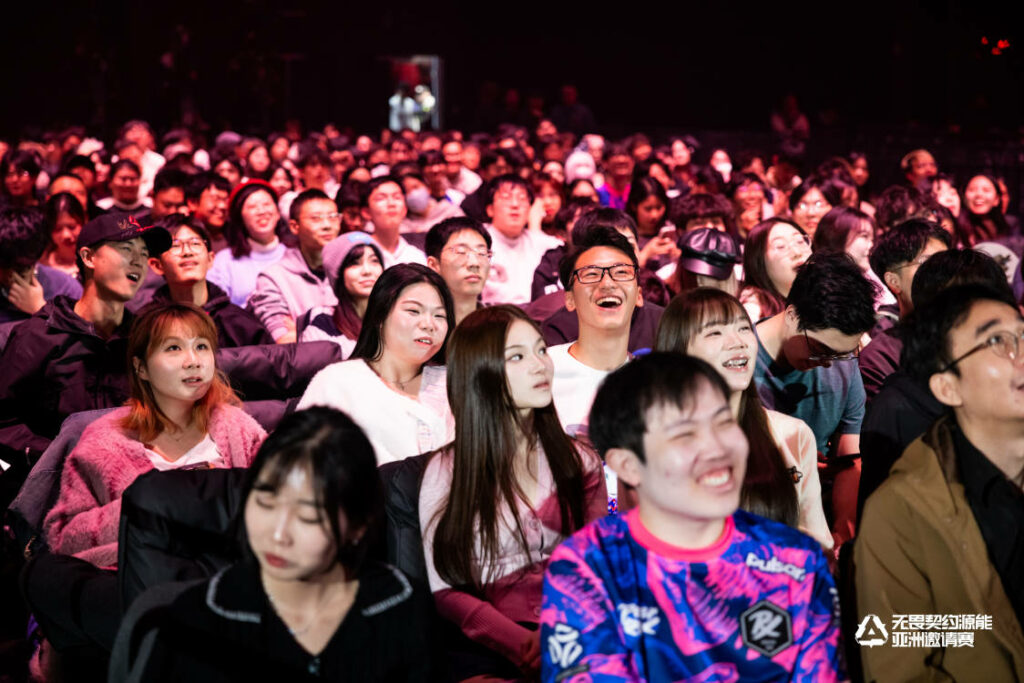
Juandi (VALO2ASIA): Could you share with us on what’s the current state of the tier-two ecosystem in China? How is the circuit structured to discover rising talent and help players progress from grassroots to competing at the highest level?
Eric: This year, the CN region doesn’t have a Challengers League, which sets it apart from other regions since they all have one. Many outstanding players have emerged from there.
In China, this year, we organized a National Competition and combined it with Ascension CN. The top eight teams from the National Competition advanced to Ascension to compete for a temporary VCT CN spot. We plan to use a similar structure for next year’s tier-two competition. I believe the tier-two circuit is truly important because many great talents come from it, so next year, we will continue to focus on this area.
China has many cities, and we host events nationwide, including the National Competition and city-level tournaments. These events will help discover more talent and provide a growth path for them to realize their dreams. We will continue to look closely and develop these efforts.
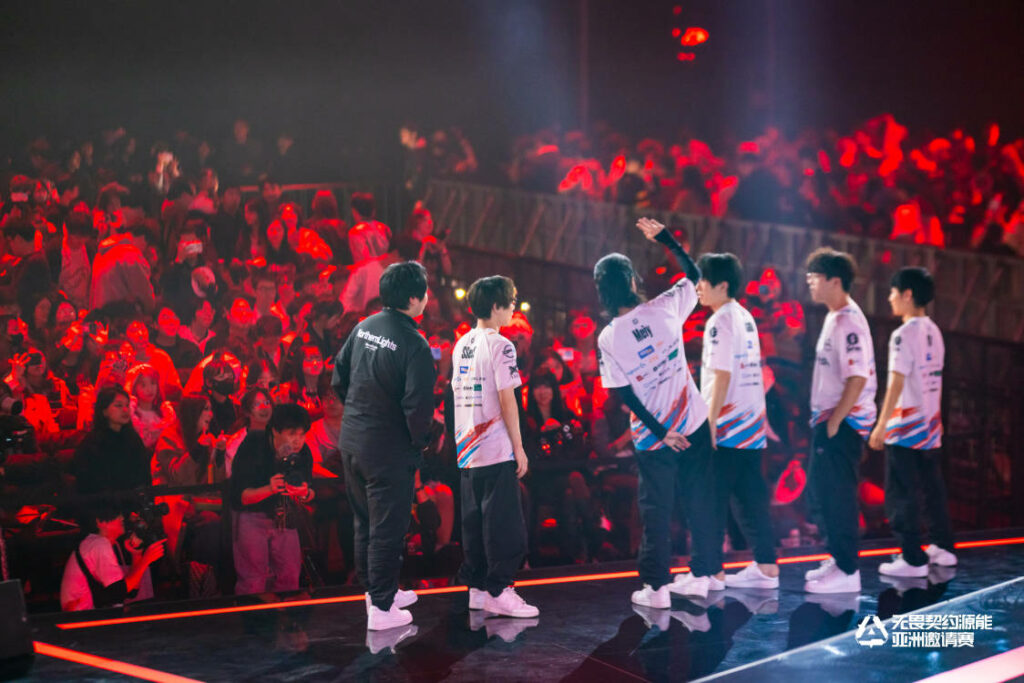
北力-张瑶 (ECO电竞派): What was the inspiration behind hosting the VALORANT Radiant Asia Invitational? Why did you decide to host an event that emphasizes a “year-end party” and choose Chengdu as the location?
Eric: Actually, the idea came from our belief that there should be such a competition at the end of the year. This type of event can better serve our fans. As many of you in the media know, VALORANT Esports has developed quite rapidly this year, and the offseason at the end of the year presents a perfect opportunity to offer this type of event, which is something many are looking for.
We chose Chengdu because, as you know, it’s a city with a very strong esports atmosphere. We believe hosting this event in Chengdu can effectively engage our fans and allow local fans to participate more actively in our esports ecosystem.
This year, several of our Road Shows were quite successful, including VCT Masters Shanghai and VCT CN Stage 2 Playoffs & Finals held in Changsha. These have been great ways to engage the community, and moving forward, we also hope to bring more online activities to offline events, providing our fans with unique offline experiences.
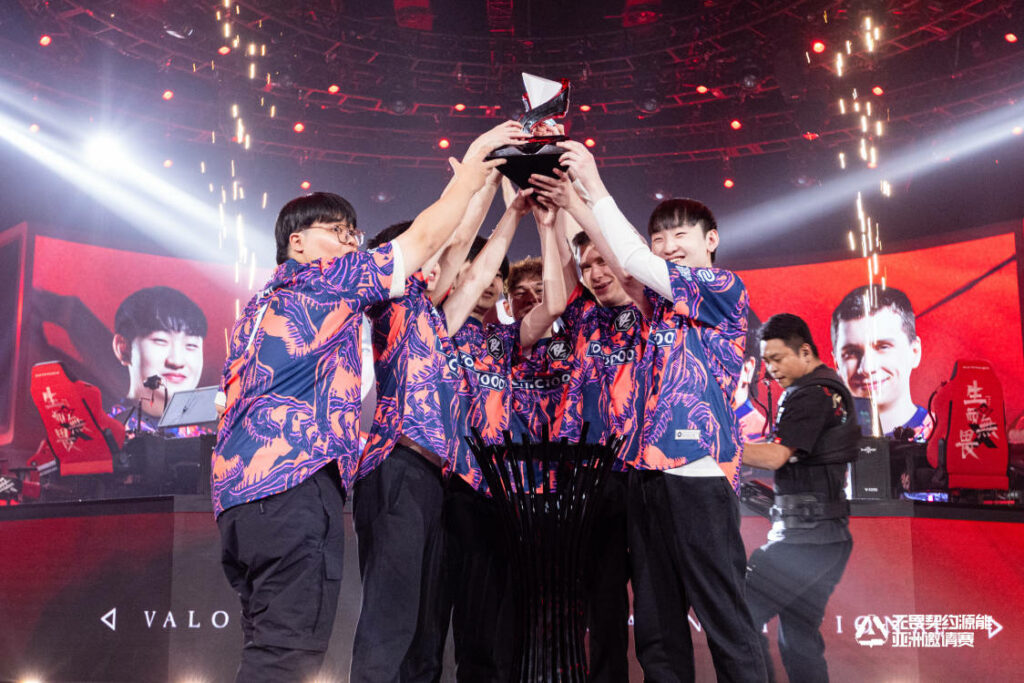
马骁-刘艺龙 (靠谱二次元): Many players from different countries have expressed their approach coming into this event to have fun and relax after the end of the season, but some fans are more concerned about the results and who will win the event. How do you balance the entertainment and competitiveness of the VALORANT Radiant Asia Invitational? Which side does the event lean more towards?
Eric: Great question. When we were planning this event, we wanted it to be more entertainment-focused. We aim to make it a year-end celebration for Asia. In the VALORANT Esports system, we don’t have a competition like the “Asian Cup.” Most events are international leagues, Masters, or Champions tournaments. So, we felt this was a great opportunity to bring together top Asian teams and players, allowing them to participate in a fun and exciting competition at the end of the year.
From the competitive side, we’ve definitely kept it professional. However, we’ve designed the format to include some entertainment elements, such as two exhibition matches, to add a bit of fun to the mix.
Looking at the competition now, during the official matches, players still treat it as a highly professional event. Many players and teams have given feedback that it’s a great opportunity for practice before next year’s league. I think that’s a good sign, and we hope this tournament can be even more competitive.
In the long term, we want this event to combine both entertainment and professionalism. For example, last week we held an exhibition match with 10 pro players, which had never been done in any previous VALORANT events. This is something we hope to continue in the future. Of course, we also need to think about how to make the event meaningful and valuable to teams and players from a competitive standpoint.
I’m also happy to see that all the top teams have had a great experience. You can see from their social media posts and content that they’ve had a positive experience with the event. This is a great example of promoting the VALORANT Esports atmosphere and Chinese esports culture.
阿圻 (暴龙电竞): VALORANT has already become a new flagbearer for Chinese esports. What are the future visions for VALORANT Esports? How will it work with teams to create a healthy esports ecosystem?
Eric: I believe that building a healthy ecosystem has always been something we highly prioritize. We emphasize in every interview that we need to lay a solid foundation and develop our ecosystem. We hope that our teams and players can serve as positive role models. This is a long-term goal that may not yield immediate results, but it’s something we must strive for.
In addition to creating the atmosphere and brand tone for VALORANT Esports, our vision has always been to make esports an industry that garners more respect. We want to show the positive side of VALORANT Esports to the young fans who love it. When they watch our matches, we hope they can feel the perseverance and the continuous pursuit of breakthroughs from our players. Our players also enjoy engaging with players from different regions, which in itself is a reflection of the cultural exchange of a great nation.
Building a healthy esports ecosystem requires a lot of behind-the-scenes work, and only after that hard work will people see a better VALORANT Esports experience. There will certainly be challenges and much of the work will go unnoticed, but this is what we are committed to and strive for. I firmly believe in the long-term perspective—esports is a sport, and sports take time to develop. For me and my team, we have the patience to gradually work towards our goals.
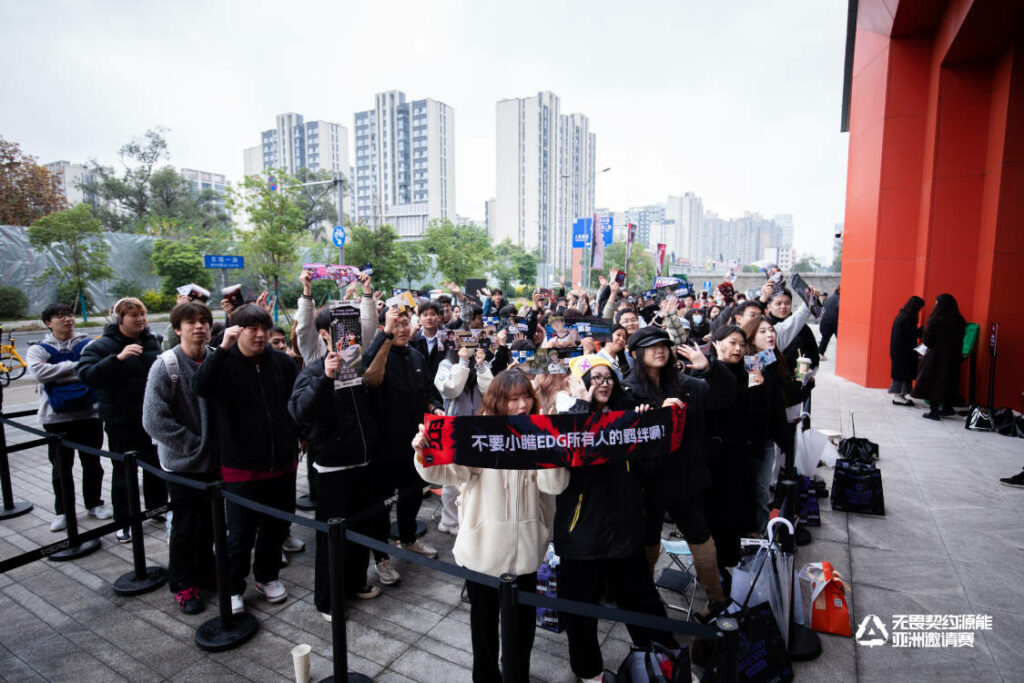
荔枝 (无畏兔玩君): The VALORANT Radiant Asia Invitational hosted by TJ Sports, along with previous domestic events, has received a lot of positive feedback. As the head of VCT CN, what does this praise mean for your entire team? Are there any upgrades planned for the league to enhance the audience experience going forward?
Eric: Of course, we’re happy to see the positive feedback. It’s rewarding to know that the fans can feel the effort we put into organizing these events. Many people joke that our tournament should be called the “Little Masters Chengdu,” which reflects the recognition of our professionalism and the quality of the competition. Many international fans also mention that when it’s a “China production,” it guarantees a high-quality event, which is very encouraging.
We’re putting a lot of thought into each tournament, and receiving positive feedback from fansis a great affirmation for our team. It motivates us to continue creating great, high-quality tournaments for fans in the coming year. As I mentioned before, we also want to keep innovating with content, so this positive feedback is very encouraging.
As for the upgrades to the event, next year, we will definitely increase the user experience and the richness of the event content. For example, this time we had a fanmeet, which was an experiment to provide more opportunities for players and fans to interact. Also, this time, player walkouts were combined with a spectator app, which allowed users to choose where they wanted to interact with players. Our long-time fans know that VALORANT events always offer chances for these kinds of interactions, and we want to continue upgrading these aspects.
Next year, we will focus on improving the offline user experience, leveraging tools like mini-programs and our offline fan group. We will think about how to provide more opportunities for users to participate deeply in our events. For us, it’s not just about watching a match; we want our fans to have an immersive experience, engaging with every aspect of our event and ecosystem. This is something we value greatly.
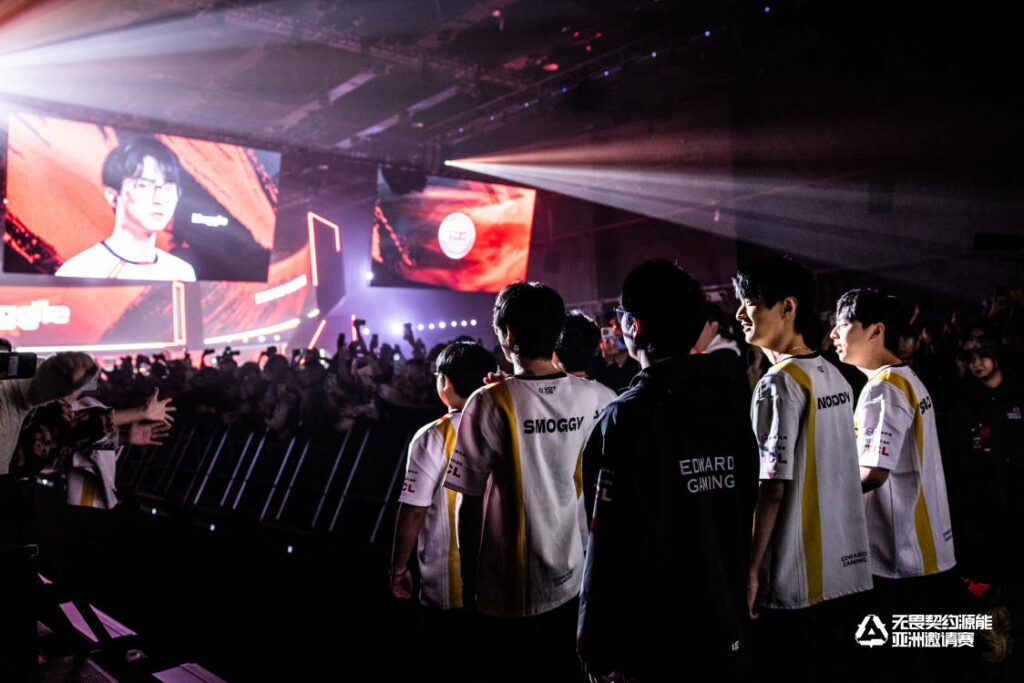
二闹 (电竞产业独立评论): When the VALORANT Esports ecosystem was first being built domestically, you mentioned that the core focus at the time was to “work hard on laying the foundation,” and that this work was time-consuming and required patience to refine. Could you please share with us the current status of the foundation-building for VALORANT Esports? What achievements have we patiently honed during this period of growth?
Eric: I believe that “building the foundation” is something that cannot be fully achieved in just one year, but at least we can see some encouraging progress. For example, within the entire VALORANT Esports ecosystem, the professionalism of our players has greatly improved, especially in terms of how they handle interviews, interact with audiences, and engage with fans. This is something we’ve always emphasized with each of them, as we hold regular training and exams for our players every year. These exams are serious, with written tests, and only those who pass receive a certification to officially recognize them as qualified to work within our system.
I think this is very important because, for someone at that age, guiding them and teaching them what is right is crucial. For many of them, being a professional player might only last 6, 8, or 10 years, but we hope that by choosing esports, they will become better people in the process. This is a key part of our foundation-building, as we believe it holds greater value and importance.
Secondly, we have very strict league policies such as salary caps, operational rules, and strict criteria and goals that players and teams must meet. These measures help everyone approach the game with a more professional attitude, and in turn, they ensure that the industry grows in a sustainable way.
Of course, foundation-building is a long-term process. For us, if we are looking to create an esports product that lasts 10 years or more, what we’re doing now is just the beginning. The future will be about how we can better nurture young players, how we can allow more new talent to emerge in this industry, and how we can help every individual in the ecosystem gain more popularity and better rewards. Ultimately, we hope that everyone involved in VALORANT Esports feels that being part of this ecosystem allows them to grow and improve, which is the original intention behind our long-term commitment to building this foundation.
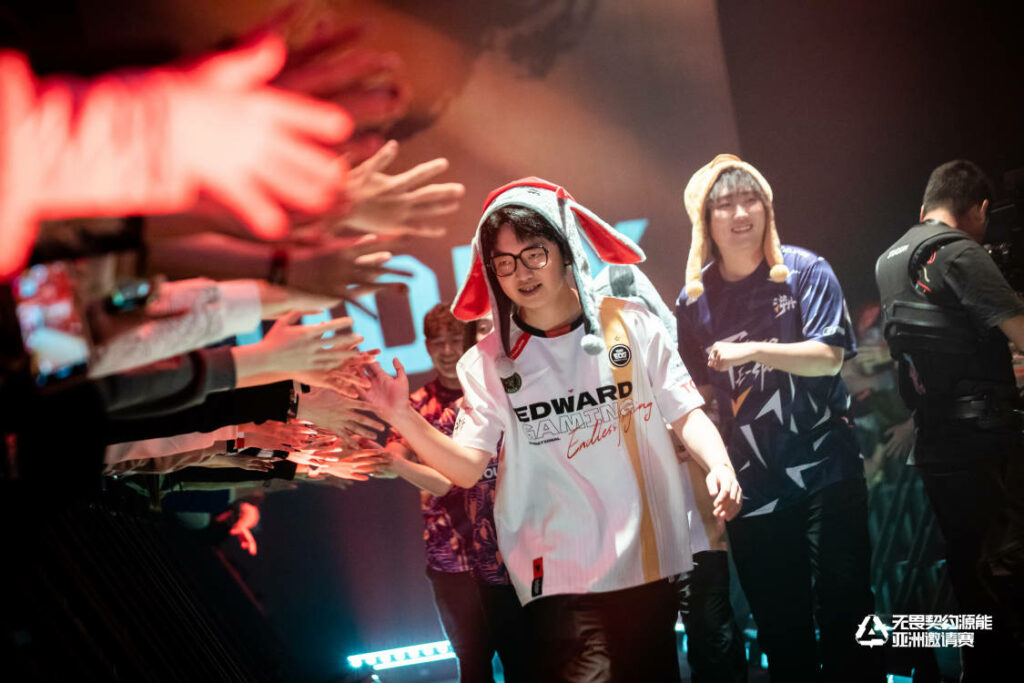
二闹 (电竞产业独立评论): In August this year, EDG’s victory at VALORANT Champions brought huge growth to VALORANT Esports in China. How did this help the development of CN VALORANT? What are the next development goals for the CN region after this year’s Asia Invitational?
Eric: EDG’s victory was certainly beyond expectations, as many people did not foresee such a result in the first year. Of course, there were voices saying that maybe winning so early wasn’t ideal. However, at least this victory is a very positive turning point. It shows everyone, whether they are entering the industry or already part of it, that five Chinese players can win a championship in the 5v5 FPS field, which I believe is incredibly important.
Previously, many people might have thought that Chinese players couldn’t win in this (FPS genre), but I believe EDG’s win shattered this belief, and it will definitely bring a lot of positive impact. It will encourage more young people with esports dreams and skills to join the industry. On the day of EDG’s final, the viewership numbers set historical records and reached an extremely high level, which will be shared publicly later.
VALORANT Esports is still in its first year, and for many viewers, the product’s recognition and awareness need a gradual growth process. EDG’s victory helped break down many barriers and expanded our visibility to a much broader audience. I believe EDG’s win will have a long-term impact on us. Whether it’s more people becoming aware of the game or the tournament because of EDG’s win, or more individuals willing to pursue careers in VALORANT Esports, every aspect of this is a good thing. It creates a positive cycle and value for the entire industry.
Juandi (VALO2ASIA): Could you share any insights into how the VCT bundle is performing in China? Are there any interesting numbers or trends you can share with us today?
Eric: The specific sales data for the VCT CN team bundles cannot be shared at the moment, but it’s clear that EDG’s team bundle was definitely one of the best-selling among all the teams’ bundles this year, largely due to their performance in winning the Championship. Of course, many fans purchased the team bundles to support their team. Creating such team and game collaborations is very meaningful. On one hand, it helps the teams increase revenue, and on the other hand, it provides a way for fans to express their love and interest for the teams within the game. EDG has earned a good amount from this sales initiative, and overall, the feedback has been very positive.
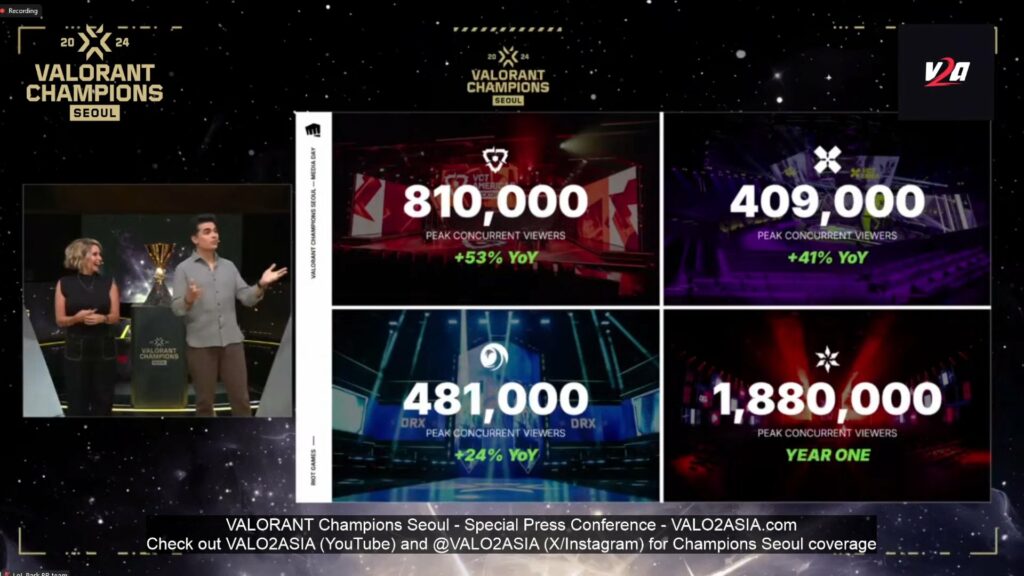
Juandi (VALO2ASIA): During Champions Seoul, VCT CN hit a peak of 1.8 million concurrent viewers, which was higher than the combined total of the other three international leagues, despite only being in its first year. The numbers were quite surprising to many. Do you have any comments or further details to share on this? Were you surprised by the viewership as well?
Eric: To be honest, I wasn’t too surprised by this data because we could foresee the trend from the very beginning of the tournament. Since last year, we’ve consistently seen an increase in viewership with each event, and it has shown a very positive trend. The 1.8 million viewership number doesn’t surprise me because EDG’s performance in the Champions this year was outstanding, and they ultimately won the championship on behalf of the CN region. We look forward to seeing even more fans watching the events next year, creating new records. The Chinese esports market is strong and has great potential for growth, and it has been very successful. We hope to achieve even greater results next year.
For more insights on the Asian VALORANT scene and upcoming content like this, be sure to like and follow VALO2ASIA on Facebook, Twitter & Instagram.
Cover photo courtesy of VALORANT Esports

